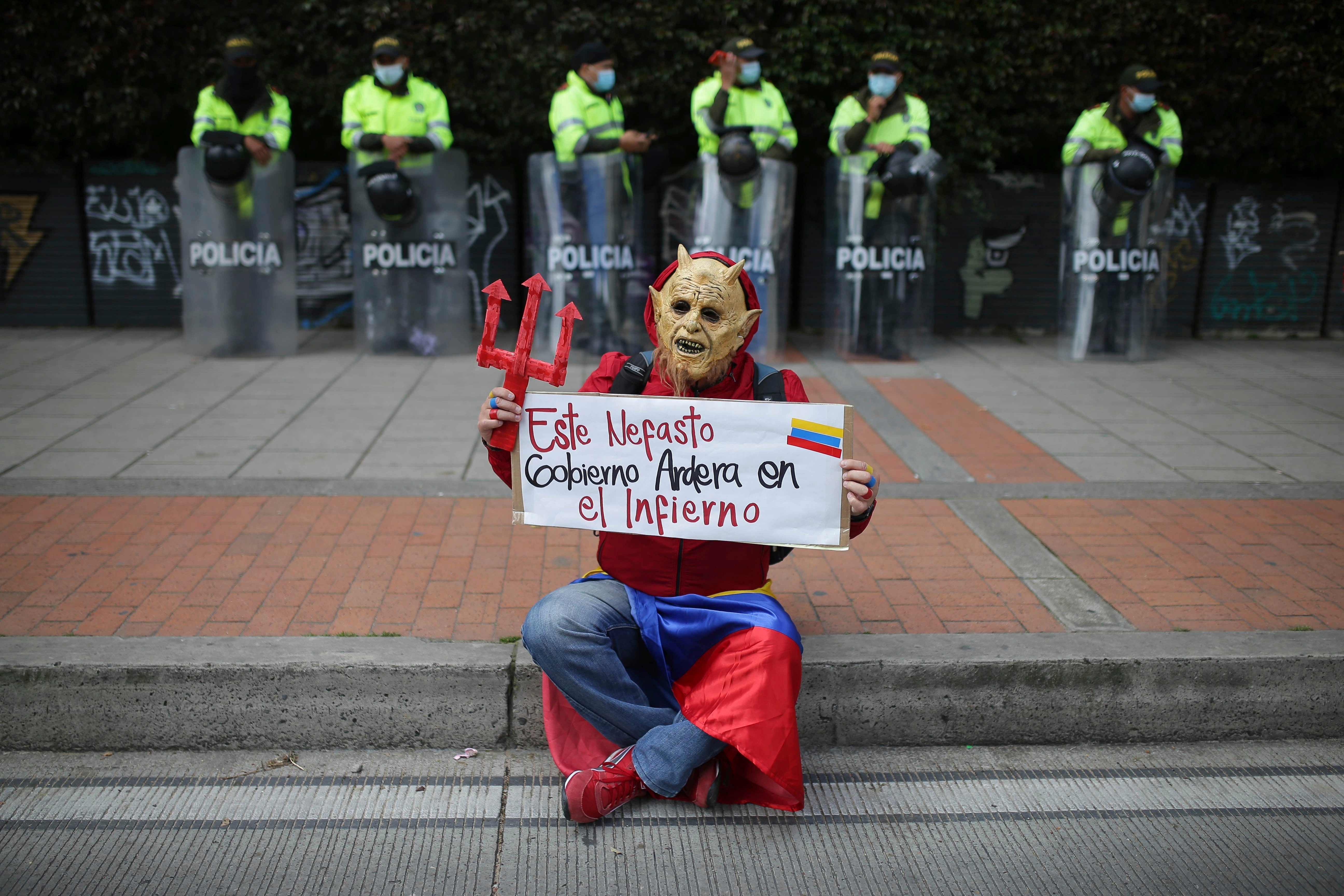Pressured by protests, Colombian lawmakers nix health reform
Colombia’s congress has voted against a health system overhaul bill, giving protesters another victory after 20 days of street demonstrations that have left dozens dead and forced the government to retreat on tax reform

Your support helps us to tell the story
From reproductive rights to climate change to Big Tech, The Independent is on the ground when the story is developing. Whether it's investigating the financials of Elon Musk's pro-Trump PAC or producing our latest documentary, 'The A Word', which shines a light on the American women fighting for reproductive rights, we know how important it is to parse out the facts from the messaging.
At such a critical moment in US history, we need reporters on the ground. Your donation allows us to keep sending journalists to speak to both sides of the story.
The Independent is trusted by Americans across the entire political spectrum. And unlike many other quality news outlets, we choose not to lock Americans out of our reporting and analysis with paywalls. We believe quality journalism should be available to everyone, paid for by those who can afford it.
Your support makes all the difference.Colombian lawmakers voted against a health system overhaul bill Wednesday, giving protesters another victory after 20 days of street demonstrations that have left dozens dead and forced the government to retreat on tax reform.
Health Minister Fernando Ruiz defended the proposal, saying it would give the health care system the tools needed to deal with emergencies like the coronavirus pandemic, which has infected more than 3 million people in the South American country and caused 82,000 deaths.
Critics of the bill said it could lead to health care monopolies by strengthening the role of private “health promotion companies,” which administer resources and contract services, and by allowing mergers in some cases of private health providers with public hospitals. It would have also increased focus on disease prevention.
“The people's struggle in the streets against years and years of injustice has achieved the shelving of a reform that would have destroyed health as a right and commercialized it even more in favor of a few,” leftist Sen. Alexander López said on Twitter after the vote by Senate and House of Representatives committees.
The protests began with anger over a now-withdrawn tax restructuring that would have raised levies during the pandemic. Demonstrators later expanded their demands to include less inequality, an end to police violence and the withdrawal of the health measure.
Hundreds of people marched Wednesday in the capital, Bogota with protesters heading to the iconic Plaza Bolivia, where the country's Congress and the Palace of Justice are. “For life and peace, stop the massacre,” said one sign. Hundreds also demonstrated peacefully in the cities of Medellin Cali, Villavicencio, Bucaramanga and Cucuta.
“Today the youth, the university students, all of us together, are in the streets demanding a change in the country’s model, which protects industry, so there is employment for the youth,” said Hami Gómez, a student leader at National University of Colombia.
Human rights groups such as Human Rights Watch say that the death toll since the protests began has risen to 55 and that in at least 15 cases the alleged aggressors were police. The Defense Ministry said Wednesday that 15 civilians had died amid the protests and 11 more cases were being verified.
Tensions rose Monday when President Iván Duque deployed security forces to try to clear dozens of roads blocked by protesters. The blockades have prevented the transportation of medical supplies, food and gasoline and led to shortages in some areas.
The government and protest leaders grouped in the National Strike Committee have not formally sat down to negotiate after several initial meetings between the parties. The government is demanding the road blockades be lifted, while protesters are calling for the demilitarization of cities and guarantees of the right to protest.
Faced with growing international concern, Colombian prosecutor Francisco Barbosa met Wednesday with representatives of the United Nations, the Organization of American States and some European ambassadors to present a report on the progress of the investigations into killings by police.
Héctor Schamis, a delegate of the general secretary of the OAS, said: "The secretary has stated that the (road) blockades cannot continue and any situation of police violence must be investigated. The prosecutor has informed us first-hand that said investigations are being carried out.”